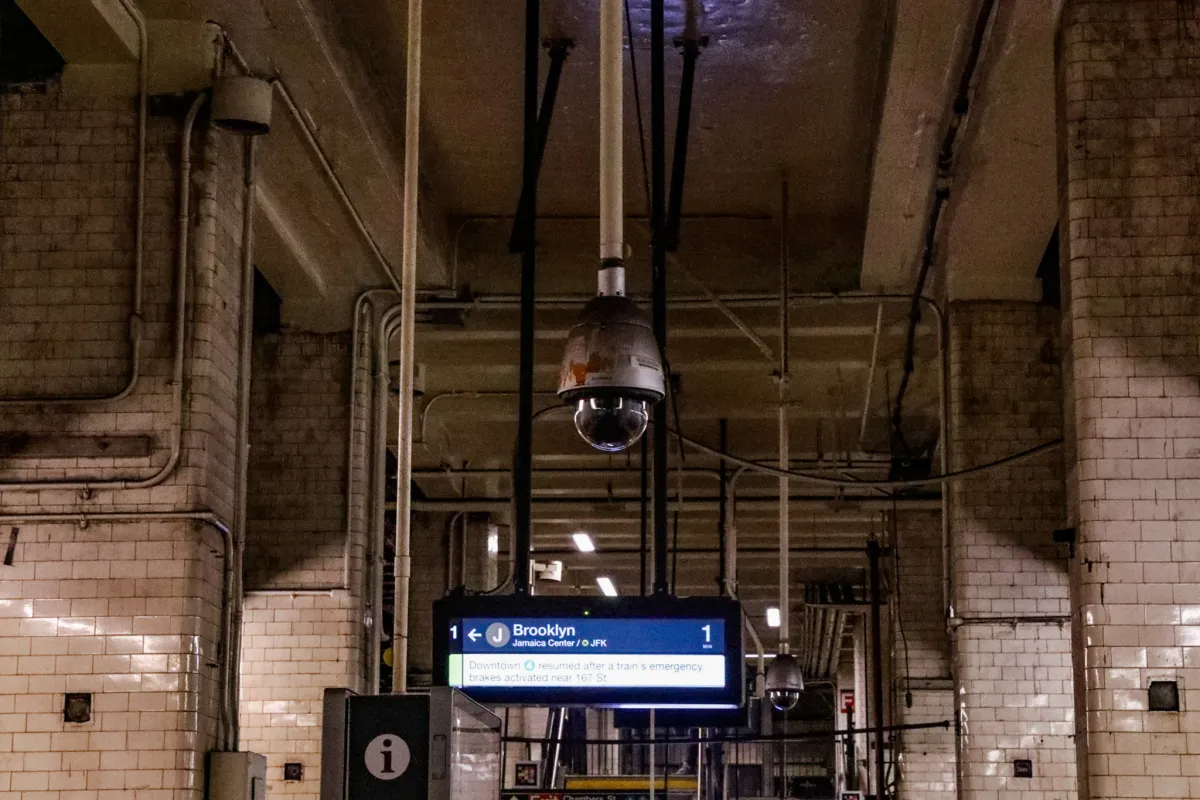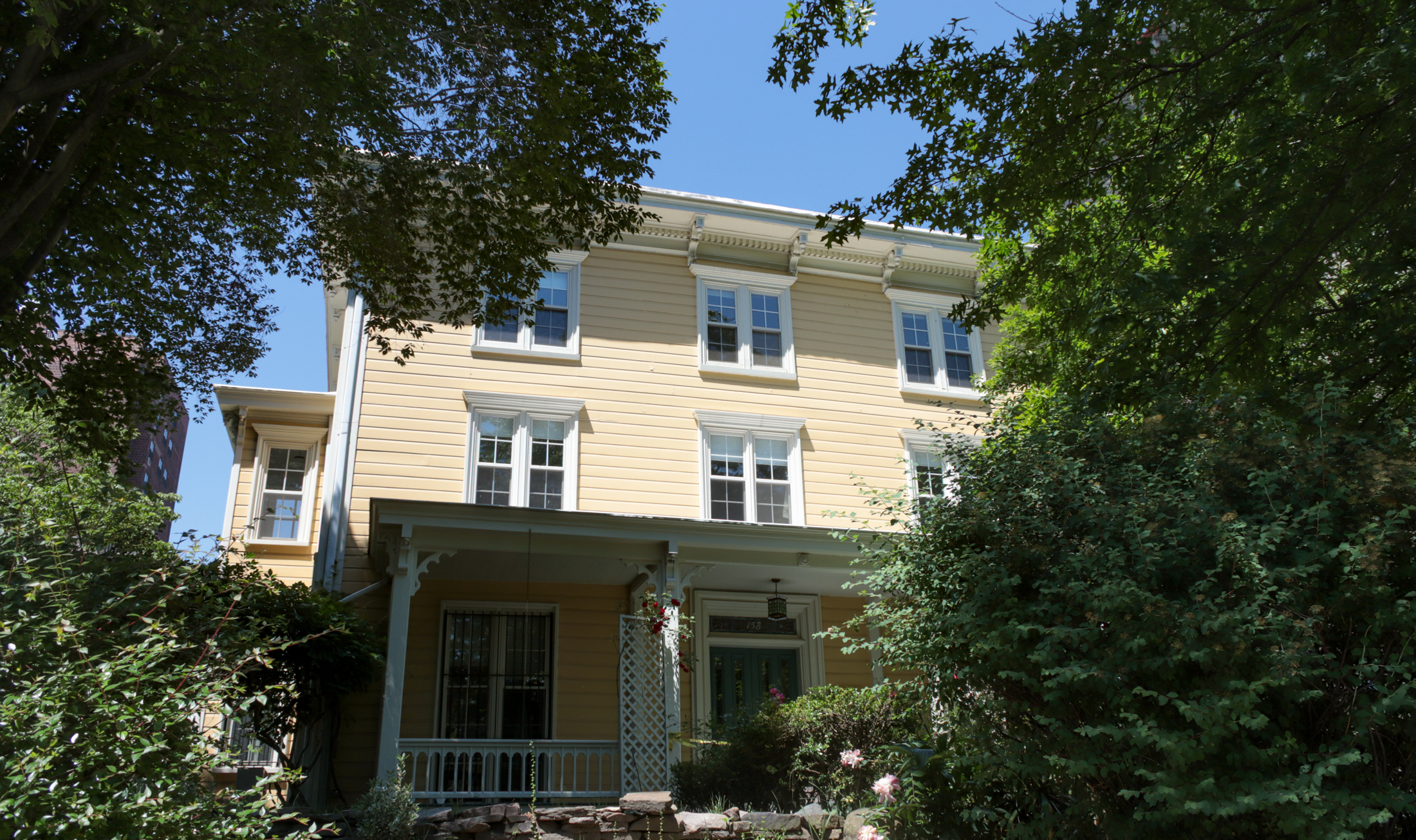'What's Wrong With Gentrification?' Asks New York Mag
This week New York Magazine takes a view on gentrification that is, if not contrarian, at least a little controversial. (The article follows a similar one in the semi-annual magazine n+1). As will come as no surprise to most readers, gentrification these days is treated as something of a dirty word. Why’s that? Mostly because…

 This week New York Magazine takes a view on gentrification that is, if not contrarian, at least a little controversial. (The article follows a similar one in the semi-annual magazine n+1). As will come as no surprise to most readers, gentrification these days is treated as something of a dirty word. Why’s that? Mostly because it conjures up associations of, as n+1 wrote, “the forced displacement of the urban working class by mobile, college-educated professionals.” This may be more myth that fact though: In his recent book There Goes the ‘Hood, Columbia urban planning prof Lance Freeman found that poor residents and those without a college education were actually less likely to move if they resided in gentrifying neighborhoods” and that “the discourse on gentrification has tended to overlook the possibility that some of the neighborhood changes associated with gentrification might be appreciated by the prior residents. In other words, the rehabilitation of an old house or the opening of an upscale bakery isn’t necessarily a zero-sum game in which the long-time residents are lose out. Not only that, claims the New York Magazine article, but gentrification is the only hope that many urban centers have of saving themselves: “The ailing cities that save themselves in the 21st century will do so by following Brooklyn’s blueprint,” the article says in closing. “They’ll gentrify as fast as they can.”
This week New York Magazine takes a view on gentrification that is, if not contrarian, at least a little controversial. (The article follows a similar one in the semi-annual magazine n+1). As will come as no surprise to most readers, gentrification these days is treated as something of a dirty word. Why’s that? Mostly because it conjures up associations of, as n+1 wrote, “the forced displacement of the urban working class by mobile, college-educated professionals.” This may be more myth that fact though: In his recent book There Goes the ‘Hood, Columbia urban planning prof Lance Freeman found that poor residents and those without a college education were actually less likely to move if they resided in gentrifying neighborhoods” and that “the discourse on gentrification has tended to overlook the possibility that some of the neighborhood changes associated with gentrification might be appreciated by the prior residents. In other words, the rehabilitation of an old house or the opening of an upscale bakery isn’t necessarily a zero-sum game in which the long-time residents are lose out. Not only that, claims the New York Magazine article, but gentrification is the only hope that many urban centers have of saving themselves: “The ailing cities that save themselves in the 21st century will do so by following Brooklyn’s blueprint,” the article says in closing. “They’ll gentrify as fast as they can.”
What’s Wrong With Gentrification? [New York Magazine]
Photo by kathyylchan





joe from bk.
this is exactly the position my wife and i are in. her parents bought a place in brooklyn for 50,000 in the early 80s while working city jobs. now we are faced with the prospect of buying in the same neighborhood for 800,000. incomes certainly haven’t gone up 16x since the early 80s.
the problem with gentrification is that neighborhoods become overrun with people who eschew the suburbs yet bring the suburban mentality to the city under the guise of being new urbanites.. when in fact they are not and never have been. they also take away the cheap bodegas and replace them with froo froo crap that real people cant afford.
*rob*
Did the Associate Prof who wrote “There Goes the ’Hood” control for housing projects which are prevalent both in Harlem and Fort Greene where the poorest people live that CANNOT be gentrified? Did he control for the NYC specific policies like rent control, rent stabilization and rent protection for the elderly. I bet he didn’t.
Why doesn’t he study what happens when a University tries to steal an entire neighborhood based on some cracks in the sidewalk?
Hard to believe there is no displacement as prices rise.
in the 70’s and 80’s 100,000 SRO rooms were lost in NYC, 100,000 ! Of course rent stabilization is a strong protection, without for example the entire east and west sides of manhattan would have changed even more than they have but in brownstone neighborhoods in leases without rent controls, you’ve had many changes to housing composition also increases motivation to change tenants as prices rise
i like to give this example: the older person who bought a house for 30,000 and sells for 500,750,900 really makes out for sticking out rough areas for so long, but her kids then can’t buy and have to rent or leave the area
so to say there is no displacement is absurd on its face
Posted by: BK realestate veteran at December 15, 2009 10:27 AM
True.
I love the irony of citing a Columbia prof, when the institution is trying to use eminent domain to take over half of Harlem.
Posted by: bupe at December 15, 2009 10:22 AM
LMBWBBAO (Laughing my big white Brooklyn-born ass off!)
Hard to believe there is no displacement as prices rise.
in the 70’s and 80’s 100,000 SRO rooms were lost in NYC, 100,000 ! Of course rent stabilization is a strong protection, without for example the entire east and west sides of manhattan would have changed even more than they have but in brownstone neighborhoods in leases without rent controls, you’ve had many changes to housing composition also increases motivation to change tenants as prices rise
i like to give this example: the older person who bought a house for 30,000 and sells for 500,750,900 really makes out for sticking out rough areas for so long, but her kids then can’t buy and have to rent or leave the area
so to say there is no displacement is absurd on its face
From what I know about the history of “gentrification” in Harlem, it went through a very different history than what has happened in Brooklyn. bed Stuy’s “gentrification” was home grown.
I agree, the word is a cliche.
I love the irony of citing a Columbia prof, when the institution is trying to use eminent domain to take over half of Harlem.
I think the term gentrification is overused and really a cliche by now.
I would really like to see statistics on change in median incomes in different zip codes over a 5 or 10 year period and compare that to change in income of entire metro area.
Part of it is that a aging population moves or dies off and is replaced by a younger set and neighborhood starts to see a change. I really don’t see people forced out of an area.